A moving & humane argument concerning medicare and opioid prescriptions*
There is no question that every reasonable and effective method to stop the opioid epidemic should be investigated, and if proven effective, implemented. The horrors and wrecked lives this epidemic have caused are all too real to many people of all ages.
However, we must remember that the opioid epidemic was primarily caused by prescribing these medicines for those with chronic pain not caused by cancer.
In the “Other View” op ed published on Nov 2, 2019, Senators Shelley Capito and Jeanne Shaheen are featured claiming that Medicare encourages over-prescribing of opioids. They are correct in that there have been articles published showing that the number of prescriptions in the Medicare population is rising.
They are also correct that their publicizing this problem has great “optics” and could help their political careers.
However, what is missing from the reports is very important. How many of these prescriptions were written for treatment of cancer pain?
In the 1970’s I watched my friend die in agony with pancreatic cancer because his doctors were afraid of losing their licenses if they gave him adequate pain medicine. They would not treat his pain because of the fear they would addict him.
In his last six weeks of life, he never slept more than 10 to 15 minutes at a time because of the severe, unrelenting pain.
Fast forward to the early part of this century when I had to watch another friend suffer needlessly. He had multiple myeloma, a cancer that causes severe bone pain all over the body. He was getting adequate amounts of pain medicine until well-meaning politicians crafted laws that restricted access to these medicines. It affected everyone, regardless of legitimate need.
These laws did little to curb the over-prescribing of opioids judging by how bad the epidemic got even after they were passed.
But what it did do what make it very difficult for him to get the pain medicine he needed. Anything less than a narcotic, in a big dose was totally worthless.
This is a plea for more information before this gets worse. Medicare-age patients are the most likely to have cancer, and treatment of cancer pain has been a great medical victory in the last 40 years.
Well-meaning laws enacted without considering the collateral damage that could be done to those with a true need would be a horrible tragedy. Or should I say, make a horrible tragedy even worse than it is for the cancer-patients in need.
By all means make it less financially rewarding for inappropriately prescribing opioids for non-cancer pain, but it is too easy to craft a bad policy than it is to fix it later.
We as a society must protect those in the greatest need.
We must ensure that the right drugs are available to the right patients in a timely manner, while keeping harmful treatments of any kind away from everyone.
Get the facts before writing a bad law.
Dr. Paul T. Davis of Findlay, OH, is a retired family physician and former Program Director of the University of Findlay’s Physician Assistant Master’s program. See also the coverage on NPR.org of Dr. Davis and his daughter, Liz Moreno, after she received a bill calling for payment of $17,850 for a urine test.
* I (Eric Thomas Weber) received and read a scan of the printed version of this article in early November and was deeply moved. Wanting to share it, I visited ‘The Courier’s’ Web site, and then reached out to them when I could not find it there. I learned that they do not post the essays of guest columnists online, and so I requested permission to share the essay here. As I have lived in Mississippi and presently now live in Kentucky, two states deeply affected by drug addiction, I believe it all the more important that our lawmakers and policymakers think carefully and humanely about the kinds of rules that they establish concerning opioids.
This article is republished here with the permission of the author and of the staff of The Courier of Findlay, Ohio.




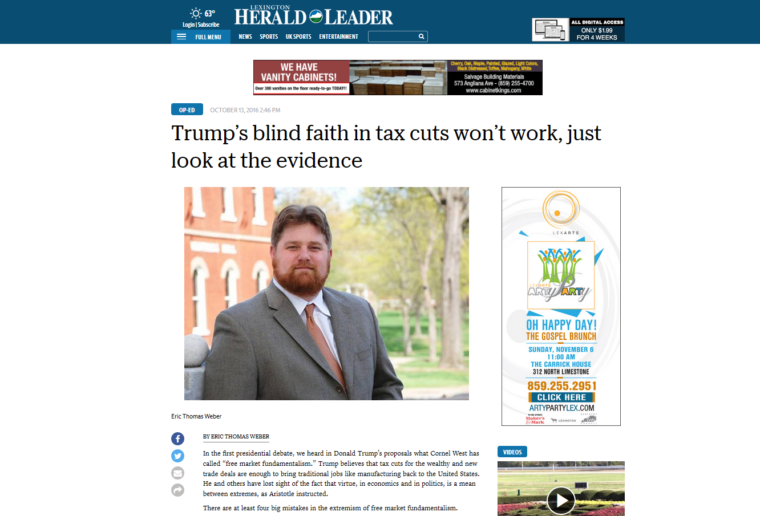
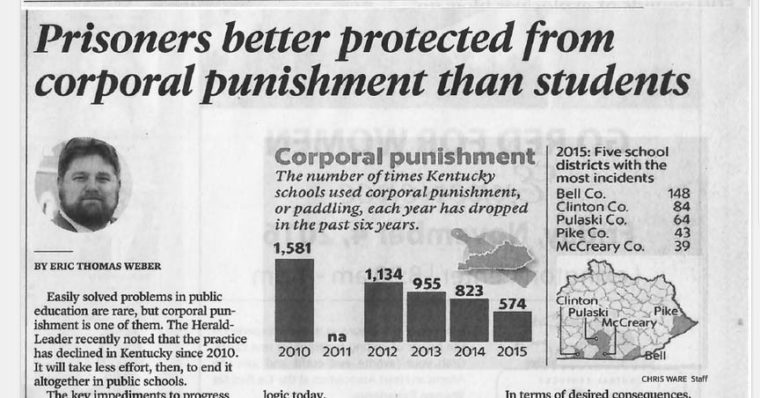
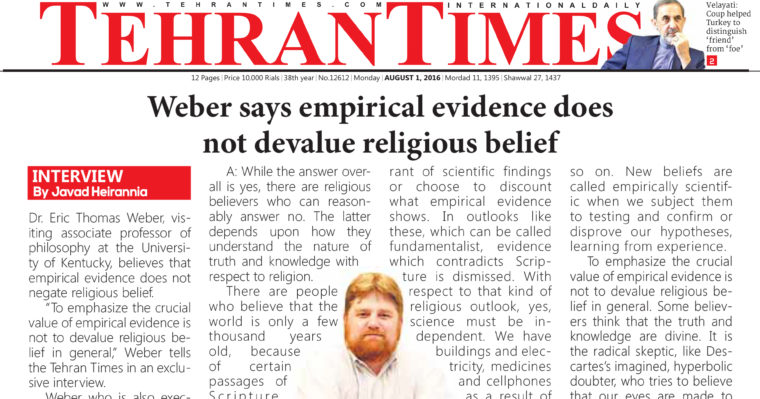
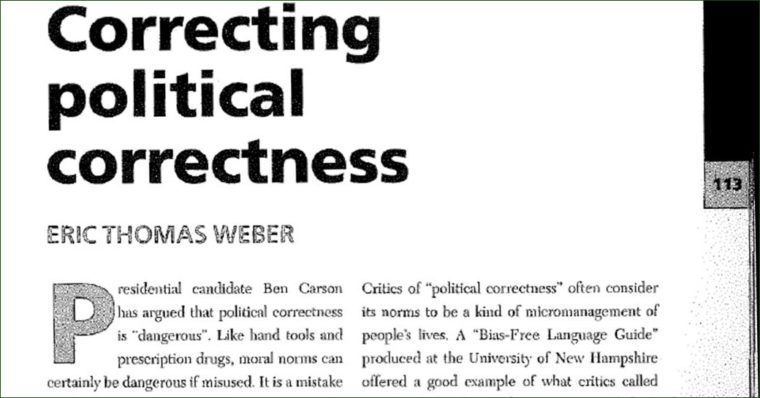
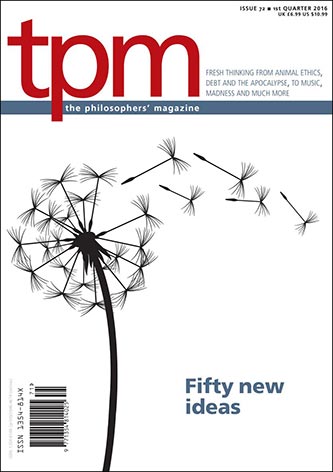
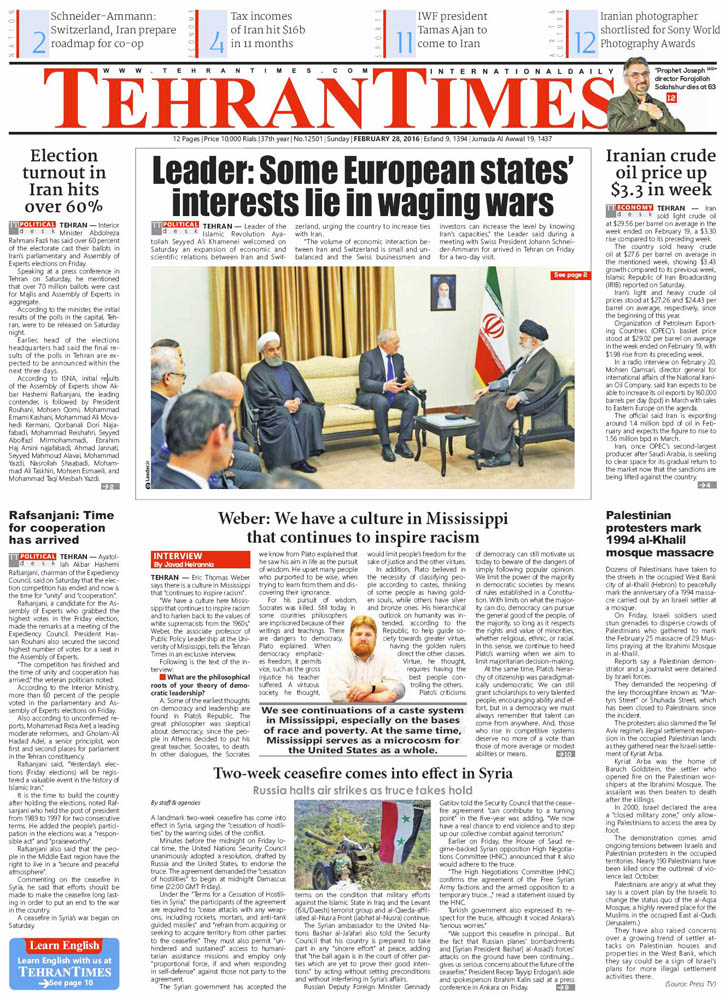
 Check out this great author interview that Jana Hoops put together for The Clarion Ledger on Uniting Mississippi.
Check out this great author interview that Jana Hoops put together for The Clarion Ledger on Uniting Mississippi.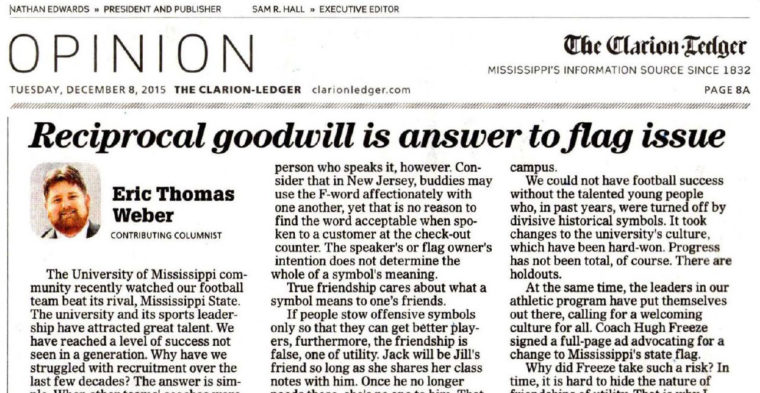

 Here’s my first piece in the Hechinger Report. It’s again on the subject of the students’ request to take the state flag down. In this case, I’ve written to a national audience, rather than just to a Mississippi audience (Clarion Ledger). Check it out.
Here’s my first piece in the Hechinger Report. It’s again on the subject of the students’ request to take the state flag down. In this case, I’ve written to a national audience, rather than just to a Mississippi audience (Clarion Ledger). Check it out.

 About Me
About Me